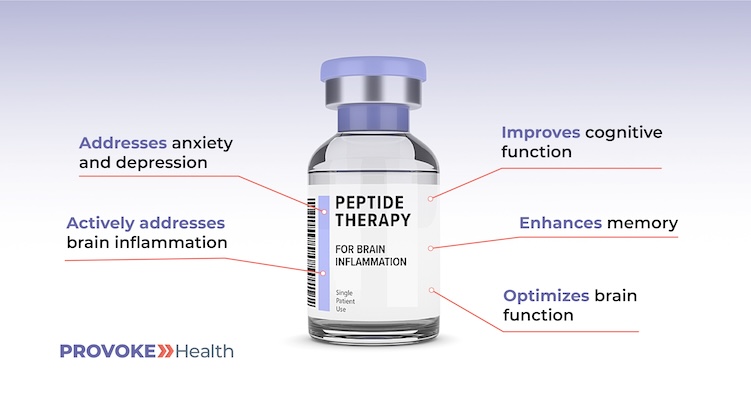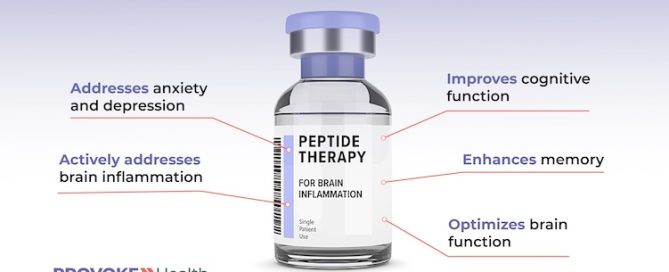The Power of Peptides in Reducing Brain Inflammation
Marilyn, an otherwise healthy 45-year-old woman, first visited our functional medicine and integrative healthcare clinic complaining of unrelenting fatigue, brain fog, loss of concentration, difficulty recalling words, and restless sleep.
She had seen other doctors, and they were unable to offer a diagnosis or any effective treatments. Her brain MRI scans came back as normal, and the neurologists with whom she consulted found no notable dementia or neurological disease that could explain her symptoms.
Her nervous system and brain were seemingly intact. All good from the perspective of conventional medicine, but Marilyn knew better; clearly, her brain was not functioning optimally. Marilyn’s symptoms were classic signs of brain inflammation. We had seen these same symptoms in hundreds of patients in the past. We knew the causes, and we had effective treatments to help her.

In this post, we look at common causes of brain inflammation and the PROVOKE Health approach to treatment, which may include the use of medically prescribed therapeutic peptides such as:
- Semax
- Selank
- Thymosin Beta 4
Exploring the Causes of Brain Inflammation
In Marilyn’s case many of the common symptoms of brain inflammation were there: exhaustion, clouded thinking and brain fog, poor sleep, anxiety, and a steep decline in quality of life. But before I (Dr. Lewis) go deeper into the specifics of Marilyn’s case, let’s take a look at the bigger picture.
Other Health Conditions Linked to Brain Inflammation
Numerous health conditions can negatively impact brain health and function, including the following: Continue reading…





